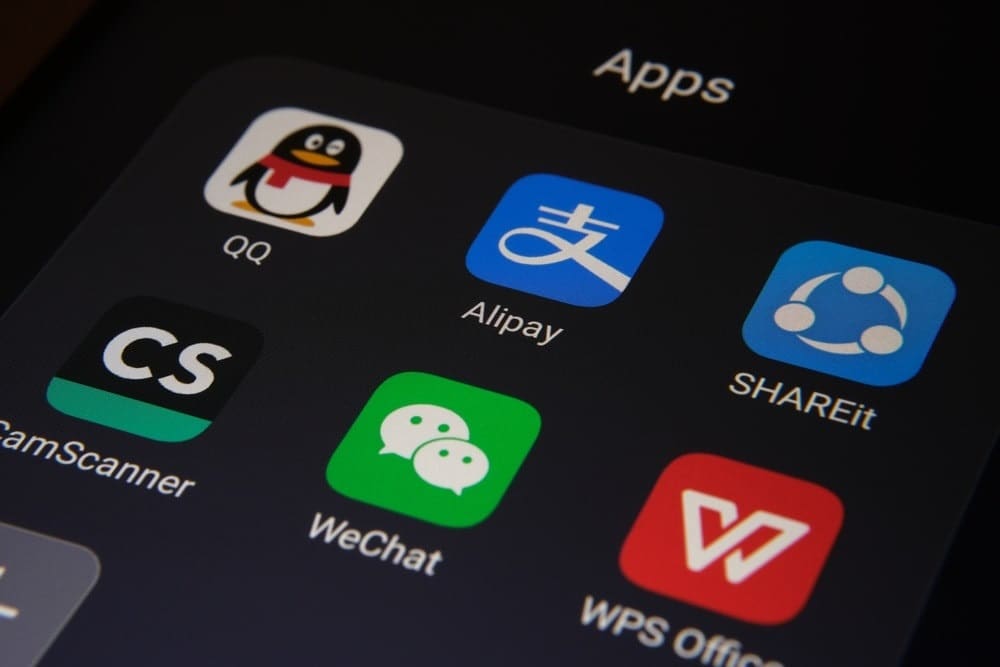International trade attorneys from Kirkland & Ellis discuss a Trump executive order from early this year, discussing who it impacts and how and what may come to pass under the Biden administration.
with contributing author Jeremy Iloulian
On January 5, 2021, President Trump issued an Executive Order on “Addressing the Threat Posed By Applications and Other Software Developed or Controlled By Chinese Companies” (“Chinese Apps EO”) that, effective 45 days after the date of the order (i.e., February 19, 2021), would restrict certain transactions involving developers of certain Chinese software applications. Specifically, the Chinese Apps EO would restrict transactions by persons subject to U.S. jurisdiction, or involving property subject to U.S. jurisdiction, with persons that “develop or control” Alipay, CamScanner, QQ Wallet, SHAREit, Tencent QQ, VMate, WeChat Pay and WPS Office.
Though companies would be well-served to examine their exposure to these applications, it should be noted that based on the effective date of the Chinese Apps EO, implementation of the restrictions will be left to the Biden Administration, which at the time of this writing has not yet commented on it.
The View from Washington
The Chinese Apps EO is one of many actions taken by the Trump Administration in the context of the ongoing U.S.-China strategic competition. A key policy driver is the U.S. government’s concern regarding China’s national strategy of military-civil fusion (i.e., using civil technology development for military development purposes). In recent weeks, the U.S. Department of Commerce has expanded the Entity List and created a new Military End User List to cut off such parties from access to certain U.S. technologies; the White House issued an executive order preventing U.S. persons from making certain investments in designated companies linked to the Chinese military; and the U.S. Department of Energy (DOE) issued a prohibition order on Chinese-linked equipment used by certain electric utilities.
The Chinese Apps EO expresses the Trump Administration’s national security concern – which is widely shared by Democrats and Republicans alike – that “Chinese connected software applications can access and capture vast swaths of information from users.” The concern that such “data collection threatens to provide the Government of the People’s Republic of China (PRC) and the Chinese Communist Party (CCP) with access to Americans’ personal proprietary information” is reflective of the Trump Administration’s prior executive orders regarding TikTok and WeChat. Those orders have been the subject of litigation that resulted in federal courts issuing preliminary injunctions against their implementation, mainly on the basis they unduly restricted U.S. citizens’ First Amendment rights. It remains to be seen whether the Chinese Apps EO similarly will be challenged and, if so, how courts may rule. Notably, many of the applications that the Chinese Apps EO targets are not personal communications applications, so the order may stand a better chance of withstanding scrutiny, at least in part.
Key Features of the Executive Order
The Chinese Apps EO sets up a regime to restrict certain transactions with persons tied to eight listed Chinese software applications and to authorize Commerce to identify other Chinese software applications that may warrant comparable restrictions.
Subject Persons and Software Applications
Effective February 19, 2021, the Chinese Apps EO would prohibit transactions by any person, or involving any property, subject to U.S. jurisdiction with “persons [or their subsidiaries] that develop or control” the following eight Chinese “connected software applications”: Alipay, CamScanner, QQ Wallet, SHAREit, Tencent QQ, VMate, WeChat Pay and WPS Office. “Connected software applications” are defined as software that is designed for end users to use on an end-point computing device and to “collect, process or transmit data via the Internet as an integral part of its functionality.”
The Chinese Apps EO requires the Department of Commerce, within 45 days (i.e., by the effective date of February 19, 2021), to identify the scope of which transactions will be prohibited, and the actual software developers or controlling persons subject to restrictions. That 45-day implementation timeline is identical to the TikTok and WeChat EOs.
Transactions Posing an Unacceptable Risk to National Security
In addition, the Chinese Apps EO directs the Department of Commerce to continue to evaluate Chinese connected software applications for any “unacceptable risk to the national security” of the United States and to “take appropriate action” pursuant to the May 2019 Executive Order on “Securing the Information and Communications Technology and Services Supply Chain” (ICTS EO). While this leaves the door open for future restrictions against other software applications, the Department of Commerce has not yet issued any final rule regarding implementation of the ICTS EO, but rather issued only a proposed rule in November 2019.
Report on Access to U.S. Data by “Foreign Adversaries”
Reflective of the ICTS EO, the Chinese Apps EO further requires the Department of Commerce, with the Attorney General and Director of National Intelligence, to provide a report to the White House on recommendations to prevent the sale, transfer or access of U.S. user data by “foreign adversaries.” “Foreign adversaries” is a term used in other authorities, including the ICTS EO and a bulk-power focused executive order. In the bulk-power executive order, the DOE defined the term to include China, Cuba, Iran North Korea, Russia and Venezuela. It is possible that access to U.S. user data by persons in such countries could be a target of future actions.
Implementation and the Presidential Transition
The Chinese Apps EO is distinct from other China-focused measures the Trump Administration took since the 2020 presidential election in that its implementation will fall to the Biden Administration. The Trump Administration’s other actions in this context have modified pre-existing regulations or restricted party lists or implemented new regulations or restrictions prior to the January 20 transition. It is possible this is an attempt to limit the Biden Administration’s ability to maneuver away from a vigorous policy towards China, though ultimately whether and to what extent the Chinese Apps EO will be carried out will depend on the incoming administration’s approach to the issue and the perspective of President Biden’s choice for Secretary of Commerce, recently announced as Rhode Island Governor Gina Raimondo.
Key Takeaways
- Private equity sponsors should assess whether their portfolio companies have exposure to companies designated in the Chinese Apps EO and whether continuing relationships with such companies could present legal, reputational or commercial risks.
- Companies should stay abreast of implementing regulations for the Chinese Apps EO, as until Commerce issues the regulations, the order’s contours remain undefined.
- Whether and to what extent the Chinese Apps EO will actually result in restrictions ultimately will depend on whether the Biden Administration carries it out, though China national security concerns generally have proven to have bipartisan support.
- This order is just one in a group of actions taken by the Trump Administration with respect to China prior to the transition.
- Given the increasing regulatory risk with respect to China, companies should continue to assess their direct and indirect China exposure, including dealings with Chinese counterparties, reliance on Chinese supply chains, investments in Chinese companies or utilization of Chinese hardware, software or technology.



 Mario Mancuso is a partner at
Mario Mancuso is a partner at  Sanjay Mullick, a partner in Kirkland’s Washington, D.C., office, regularly represents clients on investigative, regulatory and transactional matters related to economic sanctions, export and import controls, anti-money laundering and anticorruption.
Sanjay Mullick, a partner in Kirkland’s Washington, D.C., office, regularly represents clients on investigative, regulatory and transactional matters related to economic sanctions, export and import controls, anti-money laundering and anticorruption. Anthony Rapa, a partner in Kirkland’s Washington, D.C., office, counsels companies and private equity sponsors worldwide regarding economic sanctions and export control issues in the context of corporate transactions and internal investigations.
Anthony Rapa, a partner in Kirkland’s Washington, D.C., office, counsels companies and private equity sponsors worldwide regarding economic sanctions and export control issues in the context of corporate transactions and internal investigations.






